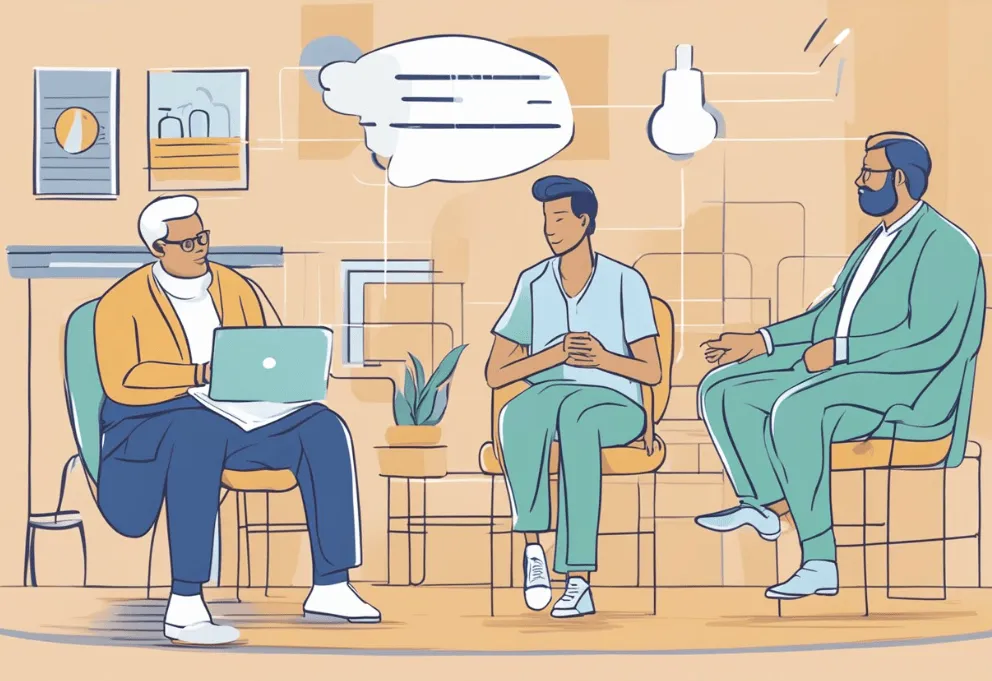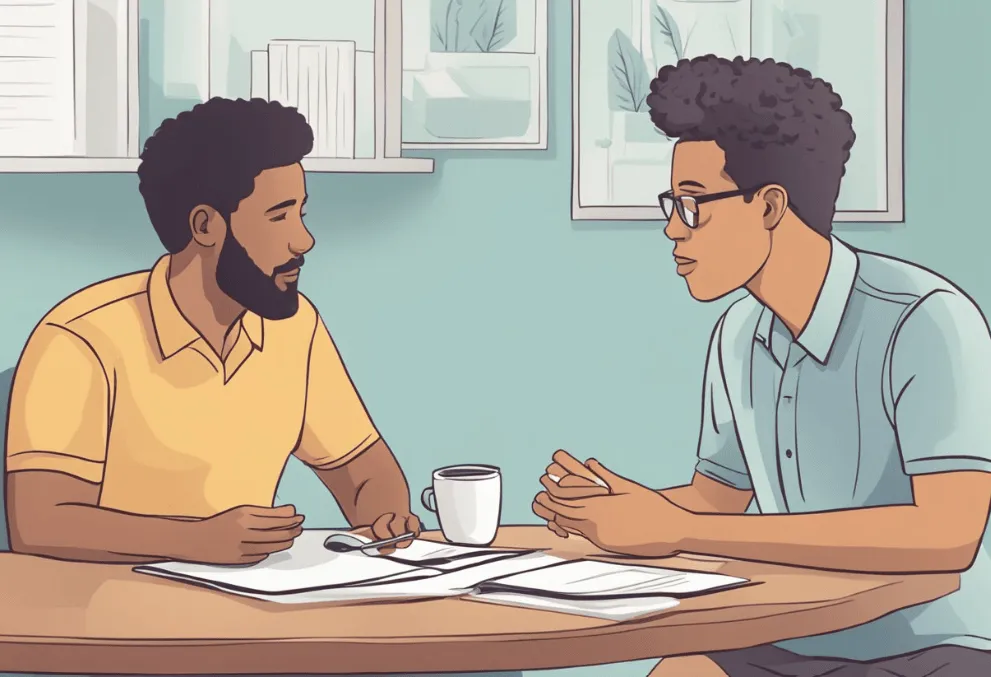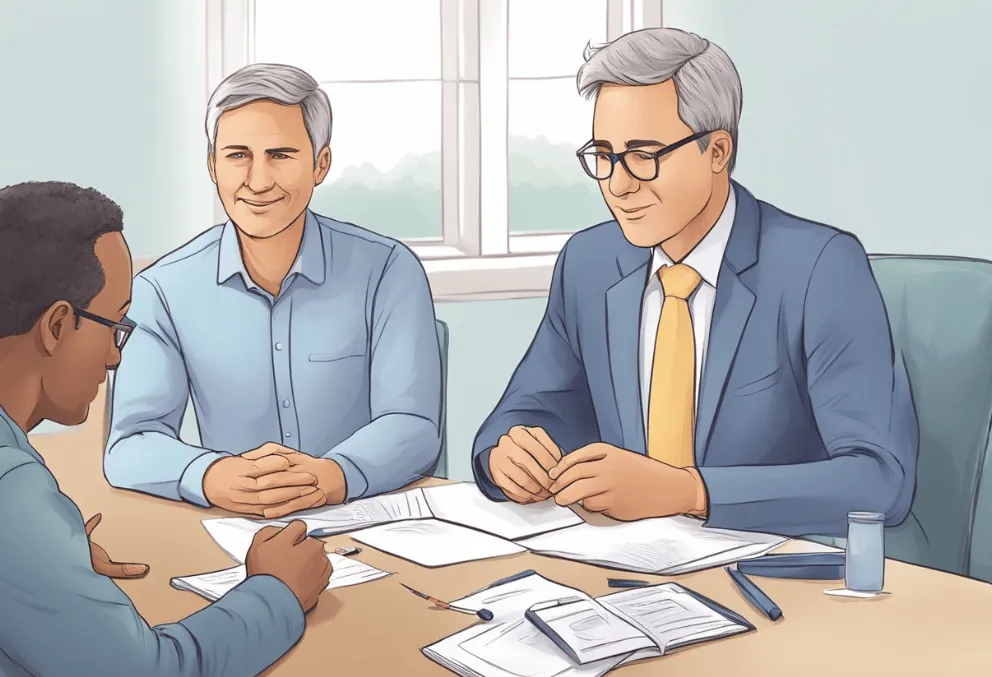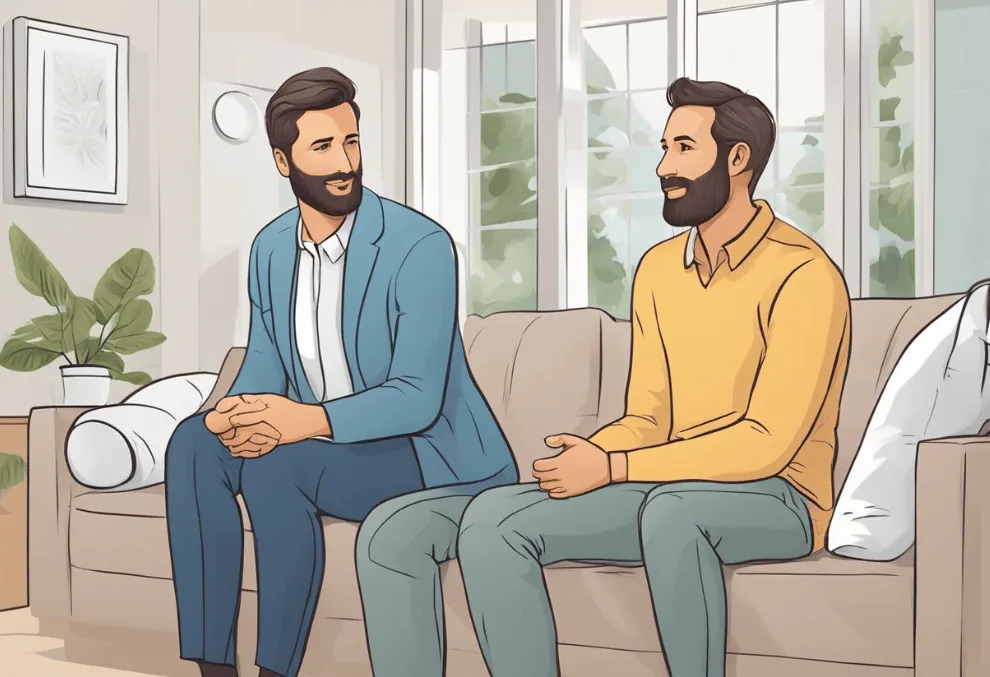Erectile dysfunction (ED) is a common condition that affects many men of different ages. It can be a sensitive topic, but it’s important to talk to your partner about it and seek treatment. ED can be caused by many factors, including physical and psychological issues, and it can have a significant impact on a man’s quality of life.
Many men feel embarrassed or ashamed about their ED, which can make it difficult to talk to their partner about it. However, it’s important to remember that ED is a medical condition, and seeking treatment can help improve your quality of life and your relationship. By approaching the conversation with empathy and understanding, you can help your partner feel more comfortable talking about their ED and seeking help.
Key Takeaways
- ED is a common condition that affects many men and can be caused by a variety of factors.
- Talking to your partner about ED can be difficult, but it’s important to approach the conversation with empathy and understanding.
- Seeking treatment for ED can improve your quality of life and your relationship.
Understanding Erectile Dysfunction

Erectile Dysfunction (ED) is a common condition that affects many individuals. It is defined as the inability to achieve or maintain an erection during sexual activity. ED can be caused by physical or psychological factors, or a combination of both.
Physical Causes
Physical causes of ED include underlying medical conditions that affect blood flow to the penis, such as diabetes, high blood pressure, and heart disease. Other factors that can contribute to ED include:
- Obesity
- Smoking
- Alcohol and drug use
- Certain medications
Psychological Causes
Psychological factors that can contribute to ED include stress, anxiety, depression, and relationship issues. These factors can interfere with sexual arousal and lead to difficulty achieving or maintaining an erection.
It is important to note that ED can also be a side effect of certain medical treatments, such as surgery for prostate cancer.
Discussing ED with a partner can be difficult, but it is important to approach the conversation with sensitivity and understanding. It is important to remember that ED is a medical condition and not a reflection of one’s masculinity or sexual ability. By working together with a partner and seeking treatment, individuals with ED can improve their sexual health and overall well-being.
Recognizing the Need for a Conversation

When a man experiences erectile dysfunction (ED), it can be a difficult topic to discuss with his partner. However, it is important to recognize the need for a conversation about the issue. Here are some tips for recognizing when it is time to start that conversation.
Observing Changes
It is important to pay attention to any changes in sexual performance or desire. If a man is experiencing difficulty getting or maintaining an erection, it may be a sign of ED. Additionally, if there is a decrease in sexual desire, it may also be a sign that something is amiss. These changes may be gradual, so it is important to pay attention to any differences in sexual behavior.
Acknowledging Concerns
If a man is concerned about his sexual performance or has noticed changes, it is important to acknowledge those concerns. It can be difficult to admit that there is a problem, but it is the first step in seeking treatment. It is important to remember that ED is a medical condition and not a reflection of masculinity or virility. Acknowledging concerns can help start an open and honest conversation about the issue.
Discussing ED with a Partner
Talking about ED with a partner can be a difficult conversation to have. However, it is important to remember that ED affects both partners and that seeking treatment can improve the relationship. When discussing ED, it is important to use neutral language and avoid placing blame. It is also important to discuss the issue at a time when both partners are calm and relaxed.
Preparing for the Discussion

Before discussing ED with a partner, it is important to prepare and gather information. This section will provide some tips on how to do so effectively.
Gathering Information
It is important to gather information about ED before discussing it with a partner. This can help to provide a clear understanding of the condition and its causes, as well as the available treatment options. Some sources of information include:
- Medical websites and journals
- Books and pamphlets
- Healthcare professionals
It may also be helpful to research the experiences of others who have dealt with ED. Online forums and support groups can be a valuable resource for this.
Choosing the Right Time
Choosing the right time to discuss ED with a partner is crucial. It is important to find a time when both parties are relaxed and not distracted by other things. It may also be helpful to choose a private and comfortable setting where both parties can feel at ease.
It may be helpful to start the conversation by expressing concern and empathy for the partner’s experience. It is important to approach the conversation with a neutral and non-judgmental attitude, and to avoid making exaggerated or false claims.
Overall, preparing for the discussion can help to ensure that both parties are well-informed and comfortable with the topic.
Approaching the Conversation

Talking about ED can be a difficult conversation to have with a partner. It is important to approach the conversation in a way that is empathetic and maintains openness.
Using Empathy
When discussing ED with a partner, it is important to use empathy. This means putting oneself in the other person’s shoes and trying to understand their perspective. One way to do this is to use “I” statements instead of “you” statements. For example, instead of saying “you need to seek treatment for your ED,” one could say “I am concerned about your ED and want to support you in finding a solution.”
Another way to use empathy is to validate the partner’s feelings and experiences. ED can be a sensitive topic, and it is important to acknowledge that it may be difficult for the partner to talk about. One could say “I understand that talking about ED can be uncomfortable, but I think it is important for us to discuss it so we can find a solution together.”
Maintaining Openness
Maintaining openness is also important when discussing ED with a partner. This means being honest and transparent about one’s own feelings and experiences. It also means being open to hearing the partner’s perspective and concerns.
One way to maintain openness is to avoid making assumptions or jumping to conclusions. It is important to ask questions and listen to the partner’s responses. For example, one could ask “How has ED been affecting you?” or “What do you think might be causing your ED?”
Another way to maintain openness is to create a safe and non-judgmental space for the conversation. This means avoiding blame or criticism and focusing on finding a solution together. One could say “I want to support you in finding a solution for your ED. Let’s work together to find the best treatment option for you.”
Navigating Emotional Reactions

When discussing erectile dysfunction (ED) with a partner, it is important to be prepared for emotional reactions that may arise. Here are some tips for navigating these reactions:
Managing Anxiety
It is common for both partners to experience anxiety when discussing ED. The person with ED may feel embarrassed or ashamed, while their partner may worry that they are no longer attractive or that the relationship is in trouble. To manage anxiety, it can be helpful to:
- Acknowledge and validate each other’s feelings.
- Reassure each other that ED is a medical issue that can be treated.
- Avoid blaming or criticizing each other.
- Focus on finding solutions together.
Dealing with Denial
Some people may be in denial about their ED, which can make it difficult to have a productive conversation. If your partner is in denial, try to:
- Approach the topic gently and with empathy.
- Encourage your partner to talk about their feelings and concerns.
- Provide information about ED and its causes.
- Suggest that they speak with a healthcare provider to get a diagnosis and treatment options.
Remember that it is normal to have emotional reactions when discussing ED. By being patient, empathetic, and informed, you can work together to find a solution that works for both of you.

